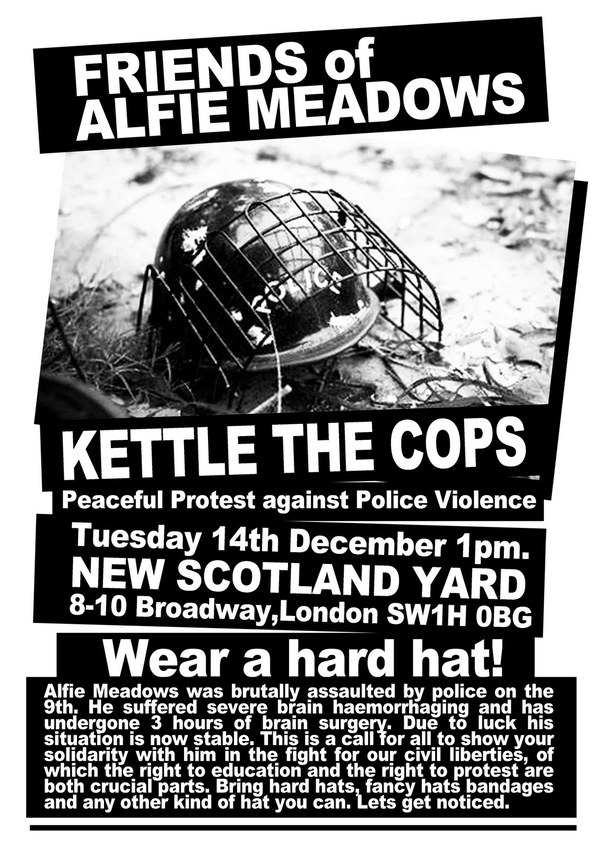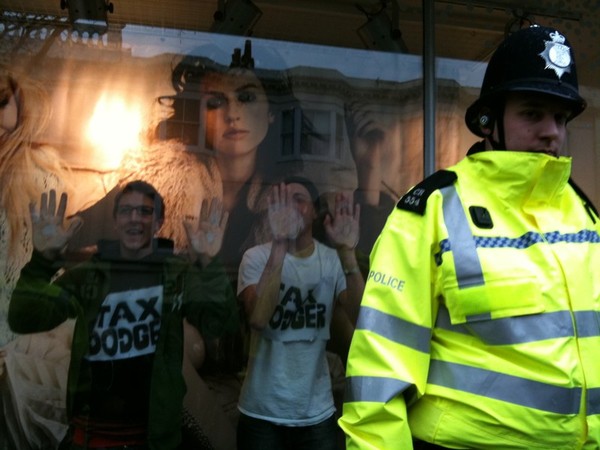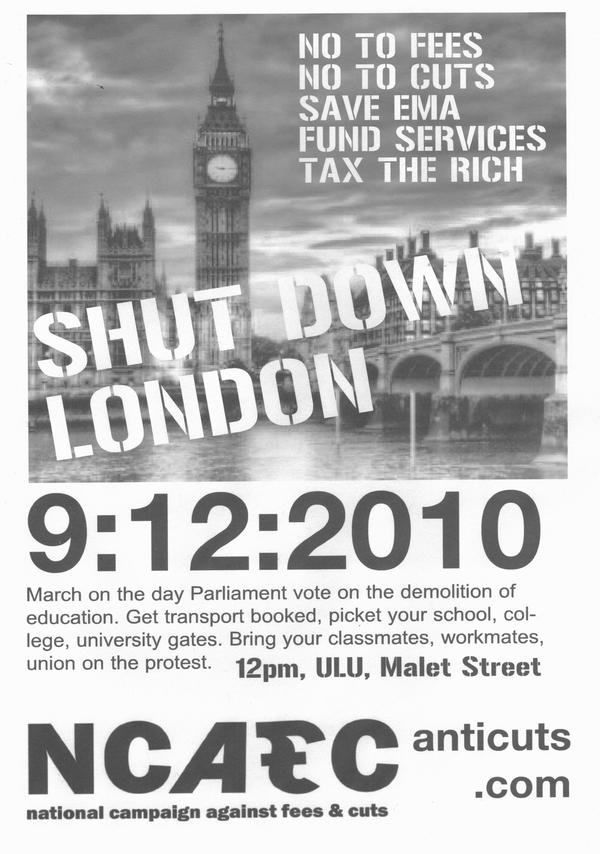December 27, 2010
Old Haunts
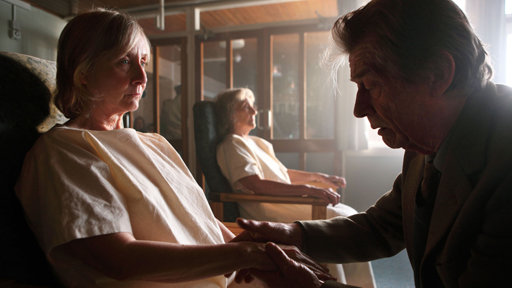
Well, the new version of Whistle and I'll Come to You was a surprisingly welcome antidote to all the - literal and figurative - noise of Christmas television. Noise in entertainment culture functions in precisely the opposite sense to Noise the non (musical) genre: it's not an invitation to explore the materialities of sound beyond music, but a question of submitting to sound being used ballistically, as a behaviouristic bludgeon triggering familiar associations.
One of the enjoyable things about the reinvention was its (verbal) silence. The dialogue can't have amounted to more than a few pages of script. The verbal silence allowed for a close attention to both diegetic and non-diegetic sound. The atmosphere was set by subtle murmuring electronics, while, initially, the night terrors to which John Hurt's Parkin was subject were predominantly sonic. Parkin was beset by acousmatic entities, rattles and scrapings detached from any identifiable origin. It's no accident that when the horror took on a visible form, it was immediately less powerful.
What dialogue there was - whether it consisted of apparent banalities ("You should have known her when she was herself", "We have a double room for you", "I wish you were here") or Parkin's disquisition on the universe's indifference (it conserves energy, but wastes love) - was heavily freighted with uncanny philosophical implications.
In Jonathan Miller's 1968 version, the focus was on Parkins's own incipient dementia. In the new version, Parkin is tormented by the dementia that has reduced his wife to a catatonic shell. The story was relocated from Suffolk to the West country coast and with the folorn Parkin revisiting, as he himself put it, he and his wife's "old haunts" in Devon, one couldn't help but recall Hardy's love poetry. Practically any line from Hardy's "After a Journey" could have served as an epigraph for this version of Oh Whistle: "Hereto I come to view a voiceless ghost ... Up the cliff, down, till I'm lonely, lost ... Yes: I have re-entered your olden haunts at last ... I see what you are doing: you are leading me on/ To the spots we knew when we haunted here together." James was the kind of Christian Oxford academic towards whom Hardy felt resentment, but in some ways both James the antiquarian turned ghost story writer and Hardy the upstart man of letters were equally strangers in the twentieth century.
The demonic entities in James's stories were typically characterised as unquiet atavisms: relics from a pre-Christian past. In this new version, Parkin instead confronted a horror proper to the era of speculative realism, becoming fixated on objects whose interiors remain opaque, their blank, inexpressive surfaces masking what could be malign designs. The vast geological features through which Parkin walked on the beach connoted a deep time indifferent to human existence; while the psychic death of his wife ("a body that has outlasted the existence of the personality: more horrifying than any spook or ghoul") was made to presage cosmic extinction itself. "There is nothing inside us," Parkin mordantly declared. "There are no ghosts in these machines. Man is matter, and matter rots." Yet Parkin's own statement establishes that there are ghosts in the machine, that a certain kind of spectrality is intrinsic to the speaking subject. After all, who is it who can talk of having no inside, of man being rotting matter? Not any substantial subject perhaps, but the subject who speaks, the subject, that is to say, composed out of the undead, discorporate stuff of language. In the very act of announcing in its own nullity, the subject does not so much engage in performative contradiction (as, for instance, certain critics of Thomas Metzinger would have it: "how can Metzinger refer to himself as I" etc), but points to a ineradicable dualism that results from subjectivity itself. This dualism is not a substance dualism - rather it is a phenomenological dualism that follows directly from the acknowledgement that there is only one substance. The condition of materialists such as Parkin (our condition in other words) is of knowing that all subjectivity is reducible to matter, that no subjectivity can survive the death of the body, but of nevertheless being unable to experience onself as mere matter. Here we come to the paradoxical materialist point that comes out of fictions such as Neuromancer and Inception, which is not that experience is always embodied, but the opposite: that all experience is out of body experience. Once the body is recognised as the substrate-precondition of experience, then one is immediately compelled to accept this phenomenological dualism, precisely because experience and its substrate can be separated. There are ghosts in the machine, and we are they.
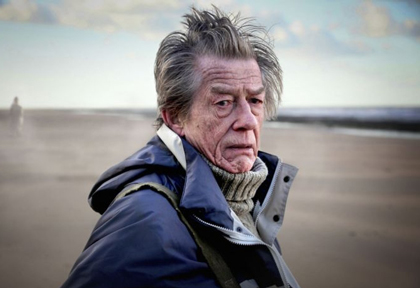
December 13, 2010
Winter of Discontent 2.0: Notes on a month of militancy

9.45 PM. Day X, November 24th. I'm at Charing Cross, grabbing my first food of the day. Actually, it's not particularly abnormal for me to be eating for the first time this late in the evening; but usually it's because of overwork, not a consequence of my being 'contained' by the police for eight hours. Two protestors arrive, coming down from the day's anger, frustration and exhilaration. I catch their eye and one of them asks me if I will be joining them next week. I say, yes, tell them that I've been kettled in Whitehall, only just got out. They say they were kettled twice. One of them has a V for Vendetta mask pulled up off his face. The police held him for a while but had to release him because of lack of evidence. (Later, one of my students at UEL will tell me a similar story - arrested by the cops on the grounds that he was wearing a red tracksuit top, the same as someone who supposedly set fire to a litter bin, held for a while, his clothes and mobile phone seized, bailed until April - obviously one of many intimidation tactics the police were trying on that day.) They show no surprise, no self-pity or hyperbolic self-dramatization, just a resolute sense of what needs to be done, and a delight in doing it. I enjoyed it, looking forward to next week...
I ask one of them what he does. He says his frend is already to college; he will be going next year. But it's not just about that ..... It wasn't just about him; it wasn't just about tuition fees, or EMA ...
It's not just about that ...
We are no longer that post-ideological generation
Contrast what the fifteen year old in the video above says with some of the responses from the "liberal" commentariat - those who belong the real "post-ideological generation", if ever there was one. For Deborah Orr, it's business as usual. Resistance to capitalist realism remains futile. "It is sometimes suggested that there is little protest against the cuts, except from students and schoolchildren, because adults are too craven and apathetic to stand up and be counted. The truth is that they are too wise to waste their energy on something so silly. Protesting against the cuts is like protesting against water's stubborn habit of flowing downwards." Compare also with David Aaronvitch on Newsnight: the avuncular grey vampire body posture, that performance of simultaneous weariness and infinite ease in the world, the jaded fatalism passed off as mature wisdom. Yes, of course, I would have gone on the marches when I was a student, bu f of course I know better now.... It's little different to an argument made by Richard Littlejohn: the protestors will be the next generation of politicians ... As if that's what they want, as if, even if that ended up being true, it would diminish what's happening now...
3.15 PM December 1st. In one of the dream-like transitions that are becoming increasingly common in the new atmosphere, I am sitting in the UEL occupation, when in walks Richard Seymour to give a talk on the recent history of the Tory party. The students at UEL have been holding Room 101 for a week., since Day X2. Things have changed rapidly in the space of those seven days; they are changing all the time. There are now banners draped all over the central concourse of UEL's Ballardian Docklands campus. Elsewhere, occupations are sprouting everywhere, like unexpected wildflowers.
The only thing I can compare the current situation with is emerging from a state of deep depression. There's the rush that you get simply from not being depressed any more --- the occasional lurching anxieties, a sense of how precarious it all seems (don't drag me back into nothing) --- and yet not only is it maintaining itself, it's proliferating, intensifying, feeding on itself --- it's impossible, but it's happening --- the reality programme resetting itself ---
David Cameron's response is both patronising and misjudged. The students should understand what they are protesting against before they protest. Yet it's clearly Cameron who doesn't have a handle on the current situation (who does?). As Richard argued in his talk at the UEL occupation, these flabby toffs don't have the experience, the strategic intelligence or the ideological consistency to win a bitter fight. Cameron was a Tory leader constructed in, and geared up for, the pre-2008 "consensus of indifference" (Baudrillard) - he didn't expect a struggle, certainly not with those who intend to win. What Cameron doesn't grasp, doesn't want to grasp, is the way that the fees are only the immediate cause of the new militancy. What has been provoked is a generalised discontent with nothing less than capitalist realism itself.
5.30 PM, December 2nd. Neoliberalism isn't working I've been stuck on Dartford station for ninety minutes. No trains moving in either direction. No-one knows where the trains are, or if they will be able to travel any further even if they arrive. One train tried to head further south, but it only got a hundred yards out of the station before having to stop. Official communication is minimal, but only has the status of rumour any way. The railway workers, bereft of reliable information, tell you one thing, then find it immediately contradicted by developments. Are the buses running? Who can say? ...
I strike up conversation with someone who happens to be heading to my destination. The usual complaints and bemusement. Why does everything in the UK have to be so crappy?. He's a casual worker, worried that his Christmas will be ruined if this weather keeps up. If he doesn't go to work, he doesn't get paid, and he already had to have a week off for flu.
Frail hopes of a train receding, we consider options - we're less than ten miles from where we want to be, but we could end up having to stay in a hotel. Then he gets a phone call; a friend will pick him up, and he can give me a lift. As we stand shivering and drinking coffee from the station cafe bar, the news comes over the radio. Russia to get the 2018 World Cup. It feels as if the winter closing in around Cameron. Neoliberalism isn't working. No joy for Cameron and the other members of the ruling class Holy Trinity - the Prince and David Beckham, the poster boy for New Labour-era celebrity soccer. The grimly smirking Putin arrives last minute to claim the prize. All the boom gloss is falling away, and England feels shoddier and shabbier than it ever did in the 70s.
Saturday December 4th. I'm following the news of the UK Uncut protests on Twitter. In the cold of the kettle on Day X1, it occurred to me that the best place to be kettle would be in a shopping mall, where the containment tactics would massively inconvenience capital. But the movement is well ahead of me .... Flash mobs invade a number of Top Shop stores across the country. IT is right about the crucial significance of this kind of intervention, which "indicates, among other things, an absolute fatigue with the corporate face of city centres." And also a fatigue with the mandarin-celebrity status of figures like Green. Discontent with celebrity-wealth culture has long been like an indelible shadow that no amount of digital manipulation could quite eradicate, but, until recently, the persistent sense that something is missing amidst all this conspicuous consumption and listless hedonism has had no outlet or agent.
The image above is so evocative because it suddenly suggests an outside, an effective interruption of the blank trance you can see in the model's abstracted eyes, which reflect our own ...
Day X3, December 9th. There's long been a discrepancy between culture and the post-crash situation. It's now evident that the New Fifties are over - the scenery still survives, but you can push your fingers through it. Paul Mason talks of a "dubstep rebellion", and, although it would be churlish to complain about Mason's report, given that he was one of the very few mainstream media commentators to properly engage with the movement, Dan Hancox is surely right: it wasn't dubstep that was being played last Thursday but "rnb, bashment, road rap, american hiphop and - albeit only once or twice - grime". What's striking here is the lack of any political content, or even - "Pow" excepted - much anger in the music that was played. What we can hear exemplified, in fact, is the disengagement from politics that Jeremy Gilbert has persuasively argued was typical of the 90s hardcore continuum: "given the social and political radicalism characterising most of their immediate antecedents (acid house, with its origins in the black gay clubs of Chicago; hip-hop, only recently having left its 'golden age' of political consciousness; reggae, with its history of anti-capitalism and anti-racism), as well as the traditional radicalism of their core constituency - the multiracial poor of urban London - the music scenes of the 'nuum' were notable for their detachment from any kind of politics, their embrace of competitive entrepreneurial values, and their defence of masculinist and heterosexist norms which other dance cultures were busily and visibly deconstructing at just that moment." What we've grown accustomed to is a split between leftist political commitments and the most vibrant, experimental dance musics. No doubt this is an aspect of capitalist realism, and it's no accident that I referred to Simon's 1996 piece on hardstep in Capitalist Realism. In fact, it might well have been the case that the central concept of the book was triggered by Simon's commentary on "keeping it real" there:
- In hiphop, ‘real’ has two meanings. First, it means authentic, uncompromised music that refuses to sell out to the music industry and soften its message for crossover. ‘Real’ also signifies that the music reflects a ‘reality’ constituted by late capitalist economic instability, institutionalised racism, and increased surveillance and harassment of youth by the police. ‘Real’ means the death of the social: it means corporations who respond to increased profits not by raising pay or improving benefits but by what the Americans call downsizing (the laying-off the permanent workforce in order to create a floating employment pool of part-time and freelance workers without benefits or job security).
‘Real’ is a neo-Medieval scenario; you could compare downsizing to enclosure, where the aristocracy threw the peasants off the land and reduced them to a vagabond underclass. Like gangsta rap, Jungle reflects a Medieval paranoiascape of robber barons, pirate corporations, conspiracies and covert operations. Hence the popularity as a source of samples and song titles of martial arts films and gangsta movies like The Godfather, Reservoir Dogs, Goodfellas, Pulp Fiction, whose universe revolves around concepts of righteous violence and blood-honour that predate the liberal, social-democratic era.
... The pervasive sense of slipping into a new Dark Age, of an insidious breakdown of the social contract, generates anxieties that are repressed but resurface in unlikely ways and places. Resistance doesn’t necessarily take the ‘logical’ form of collective activism (unions, left-wing politics); it can be so distorted and imaginatively impoverished by the conditions of capitalism itself, that it express itself as, say, the proto-fascist, anti-corporate nostalgia of America’s right-wing militias, or as a sort of hyper-individualistic survivalism.
In hiphop and, increasingly, Jungle, the response is a ‘realism’ that accepts a socially-constructed reality as natural. To ‘get real’ is to confront a state-of-nature where dog eats dog, where you’re either a winner or a loser, and where most will be losers. There’s a cold rage seething in Jungle, but it’s expressed within the terms of an anti-capitalist yet non-socialist politics, and expressed defensively: as a determination that the underground will not be co-opted by the mainstream.
At DayX1 I heard the predictable "Killing In The Name" and the even more predictable "Sound Of The Police", alongside The Beatles, Madness, and - depressingly - The Libertines --- and, most jarringly, "Another Brick In The Wall" (hearing "we don't need no education" as we shuffled out of the kettle made for a suitably incongruous experience).
But this video that Jeremy shot on Thursday suggests a possible convergence between post-nuum musics and politics. It is my belief that the UK music culture of the next decade will emerge from the stew of sound and affect in the kettles these past few weeks. Paul Mason dismissed the idea that the demo was exclusively populated by "Lacan-reading hipsters from Spitalfields" - but of course (we) Lacan-reading hipsters were also there, alongside the "bainlieue-style youth from Croydon, Peckam, the council estates of Islington". In other words, this brought together working class culture and bohemia in something like the same way that art schools - so crucial to UK pop-art culture since the 50s - used to. But - with very good reasons from its own point of view - neoliberal policy has been hostile to this proletarian-bohemian cultural circuit. While Further Education and the new universities have precisely tried to make theory such as Lacan available to the working class - while also trying to engage with everything vibrant coming out of working class culture - the policy has been to re-cement rigid class and cultural distinctions: philosophy for the bourgeoisie; "vocational" courses for the masses.
Siobhan captures very well the frustrations we encountered on Day X3. Trying to be part of a crowd without being kettled proves all but impossible. The cops' ontology of the crowd is at least interesting: to enter the crowd is to be responsible for anything that any member of the crowd does. You wouldn't have been hurt if you weren't there. (One is struck by the way that this is the complete opposite of the "corporate irresponsibility" that applies to the cops themselves.) Dominic notes the "underlying identification of disorder with uncleanliness, an identification which is transferred onto the disorderly themselves, supports the cop's self-image as a preserver of public moral health, keeping the clean and decent citizen separate from the filthy and abject underside of society." (All of which is strikingly confirmed by these tweets. It's Foucault 101.
- The plague is met by order; its function is to sort out every possible confusion: that of the disease, which is transmitted when bodies are mixed together; that of the evil, which is increased when fear and death overcome prohibitions. It lays down for each individual his place, his body, his disease and his death, his well-being, by means of an omnipresent and omniscient power that subdivides itself in a regular, uninterrupted way even to the ultimate determination of the individual, of what characterizes him, of what belongs to him, of what happens to him. Against the plague, which is a mixture, discipline brings into play its power, which is one of analysis. A whole literary fiction of the festival grew up around the plague: suspended laws, lifted prohibitions, the frenzy of passing time, bodies mingling together without respect, individuals unmasked, abandoning their statutory identity and the figure under which they had been recognized, allowing a quite different truth to appear. But there was also a political dream of the plague, which was exactly its reverse: not the collective festival, 'but strict divisions; not laws transgressed, but the penetration of regulation into even the smallest details of everyday life through the mediation of the complete hierarchy that assured the capillary functioning of power; not masks that were put on and taken off, but the assignment to each individual of his 'true' name, his 'true' place, his 'true' body, his 'true' disease. The plague as a form, at once real and imaginary, of disorder had as its medical and political correlative discipline. Behind the disciplinary mechanisms can be read the haunting memory of 'contagions', of the plague, of rebellions, crimes, vagabondage, desertions, people who appear and disappear, live and die in disorder.
- Unpicking negative solidarity, which is clearly an internalisation of the conditions of flexibility and atomised ‘homo economicus’ individualism necessary for the embedding of Neoliberal post-Fordism, requires the constructing of a new form of solidarity, a form of solidarity adequately configured to effectively oppose the chief machines of Neoliberal praxis: finance. This new form of solidarity must be capable of fluidity and rapid response, able to exploit weaknesses within systems and structures opportunistically and with a global purview, one which crucially can mirror the rapidity and fluidity of international finance. This is solidarity as plasticity, rather than the static brick-like form of Fordist labour solidarity, capable of flowing and shifting, yes, but also of fixing into position and assuming a hardened form where necessary. This form of solidarity must be inclusive of the new protest and occupation movements which have emerged in recent years, which although they have been largely ineffectual to date, have certainly led to new and interesting configurations of interest groups. What has been lacking however are the necessary cybernetic coordination systems to effectively enable these disparate and fragmentary groups to achieve the status of a counter-hegemonic power, a “class” power in the broadest sense of the term, one which is capable of counter-balancing effectively the rapacious if discredited centres of neoliberalism. Indeed it is this which must be formulated as the political conclusion of theories of post-Fordisation, rather than any kind of fantastical and strictly imaginary political subject such as the multitude. Only when there is an effective counterbalancing power can new theoretical socio-economic post-capitalist forms be properly disseminated, and successfully gain purchase.
Post-Fordist plasticity is also in play in the other major political story of the day (Mail headline on Thursday: Now It's Cyber War): Assange and WikiLeaks. Now is not the time to go into this in any depth, but surely what we can see here - and something which those who say that the leaks only tell us what we already know have not grapsed - is a new level of symbolic crisis. The authoritarian big Other has always relied upon maintaining a clear difference between off-the-record utterances and official proclamations, but it is precisely this distinction which WikiLeaks (and its successors) threaten to abolish.
On the train home, I read Clegg denouncing "student dreamers" on the front page of the Standard. "I would feel ashamed if I didn't deal with the way that the world is, not simply dream of the way the world I would like it to be": capitalist realsim in a nutshell. (An unfortunate echo of Bobby Kennedy's famous slogan: "Some men see things as they are and say why. I dream things that never were and say why not.” See how, under pressure from capitalist realism, the rhetoric of mainstream liberalism has inverted.)
From Foucault 101 to Barthes 101. The coverage of the demo on the BBC news channel is a masterclass in the technique that Barthes called anchorage. What we actually see are mounted police horse charges and some property damage; what we hear about - as bravely narrated by a helmeted reporter from behind the police lines - is the "violence" of the student protestors. (It's of course not accidental that Paul Mason's report came from inside the kettle.) One of the most notable features of the media coverage since Day X has been the persistent equilvalence it has made between violence and property damage. Having narrowly avoided two kettles, I hardly see any violence or property damage. The violence I do see is perpetrated by the police, as a line of baton-swinging cops impose a kettle on protestors standing on Whitehall. I only learn about Alfie Meadows later, and the disjunction between the reality of the demo and its media reresentation becomes even more maddening, to the point where I can hardly bear to watch the news coverage any more. While a young student has a brain operation, the media are fixated on a cosmetic "attack" on the heir to the throne's car. The effects of all this are ambiguous, but it's now clear that the UK hasn't been as visibly divided as this since the Miners' Strike.
In the afternoon of Day X1, streaming from Trafalgar Square up towards Whitehall, we didn't know where we were going or who, if anyone, was leading us. A month later, the situation feels the same. We've broken out of the end of history onto terra incognita. What's certain is that the old world is disintegrating, and soon it will not be possible to even pretend that we can return to it.
December 12, 2010
Journalists, do your fucking job
To any journalists out there who might be reading this ....
Remember why you wanted to be a journalist in the first place? Remember when you didn't think the job was going to be all about copying out press releases and typing up celebrity gossip fed to you by PRs?
Well, here's your chance to actually do some reporting and some investigating.
Find out how this:

Became this:
To start you off with your research, here's some interesting background reading (via @domfox)
Seriously, anyone who has any influence in the media - pressure your editors to make this the story ...
December 09, 2010
December 06, 2010
Statement from UEL occupation
- Friends
On the afternoon of Wednesday December 8th 2010 an Emergency General Assembly will take place at the University of East London (details below)
On the same day an important seminar on the politics of 'pain' in an age of austerity will be held at the same site (details below)
The following morning, a public seminar and discussion on the crisis in higher education and the politics and practicalities of protest will be held at 10:00, allowing time for all participants to convene with the occupation afterwards and to travel to central London to join the major demonstration at 1:00pm (details below)
for any further information contact J.Gilbert@uel.ac.uk
------------------------------------------------------------------
Occupying Students at the University of East London have called an Emergency General Assembly at 13:00 in the main lecture theatre (next to the library - Docklands Campus, Cyprus DLR) on Wednesday December 8th to address the crisis facing the university, as management threatens to roll out redundancies without consulting staff unions and continues to deny students democratic representation, as the voided elections to the students' union, declared illegitimate last Spring, have STILL not been re-run. UEL is in many ways a test case for the next wave of anti-democratic neoliberal managerialism across the public sector - so this issue affects all of us. All staff and students are asked to attend the meeting; sympathetic observers are unlikely to be turned away.
------------------------------------------------------------------
UEL Centre for Cultural Studies Research
presents
A Public Symposium: The Politics of Pain
8 December 2010, 15:00 to 17:00
'Pain' has become central to the discourse of the coalition government as it embarks on its cuts programme. The cuts are inevitable, we are told, and the pain must be shared in the interests of fairness. But is the pain necessary, should it be shared, is it really being shared, how will the pain affect the social fabric, and what are the psychosocial consequences of the crisis? This is the second seminar in the Centre for Cultural Studies Research’s three-part “Debt, Pain, Work” series that interrogates the discourses and policies of the coalition government. (NB: A full audio recording of our last seminar, 'The Politics of Debt', is now available at http://culturalstudiesresearch.org/)
Speakers:
Kate Pickett, Professor of Epidemiology at the University of York, co-author of The Spirit Level: Why More Equal Societies Almost Always Do Better
Mike Rustin, Professor of Sociology in the School of Humanities and Social Sciences at UEL and author of The Good Society and the Inner World
Jeremy Gilbert Reader in Cultural Studies in the School of Humanities and Social Sciences at UEL and author of Anti-Capitalism and Culture: Radical Theory and Popular Politics
For more Information and for a full audio recording of the last event in this series see http://culturalstudiesresearch.org/
UEL Docklands Campus
Transport: Cyprus DLR station is located right next to the campus (just follow signs out of the station)
Room EB.G.14
(Ground Floor, East Building, which is to the left on entering the main square from Cyprus station)
All Welcome - no booking required
AS SOON AS THIS SYMPOSIUM HAS FINISHED THE ORGANISERS WILL INVITE ALL PARTICIPANTS TO VISIT THE UEL OCCUPATION FOR FURTHER DISCUSSION OF THE ISSUES FACING THOSE IN STRUGGLE AGAINST THE GOVERNMENT'S CURRENT WAVE OF CUTS, AT UEL AND FURTHER AFIELD
------------------------------------------------------------------
Thursday December 9th 2010
10:00-11:00 (possibly carrying on a bit longer...)
The Crisis in the Universities and the Politics of Protest
Debra Benita Shaw (UEL), Jeremy Gilbert (UEL), Stephen Maddison (UEL) will lead an open seminar on the issues, and offer some practical guidelines on safe and legal protest
Room EB.3.19 (Third floor, main building, turn left on entering main square from Cyprus DLR)
Suggested Readings:
Raymond Williams
'Why Do I Demonstrate?'
http://www.culturalstudies.org.uk/WhydoIdemonstrate.PDF
Jeremy Gilbert
'Elitism, Philistinism and Populism: the sorry tale of British Higher Education Policy'
http://www.opendemocracy.net/ourkingdom/jeremy-gilbert/elitism-philistinism-and-populism-sorry-tale-of-british-higher-education-p
Andrew Robinson and Simon Tormey
'New Labour’s neoliberal Gleichschaltung: the case of higher education'
http://www.commoner.org.uk/07robinson&tormey.pdf
Paul Bowman
'The ConDemned'
http://www.newleftproject.org/index.php/site/blog_comments/the_ConDemned/
-----------------------------------------------------
Advice for protestors:
Comprehensive 'bust card' - info to carry with you in case of unwelcome police attention - here:
https://london.indymedia.org/system/file_upload/2010/11/21/303/bust_card.pdf
Useful anti-'kettling' tactics discussed here:
http://www.permanentrevolution.net/entry/3208
How not to get kettled...:
http://www.youtube.com/watch?v=O0jKvgS7olo
